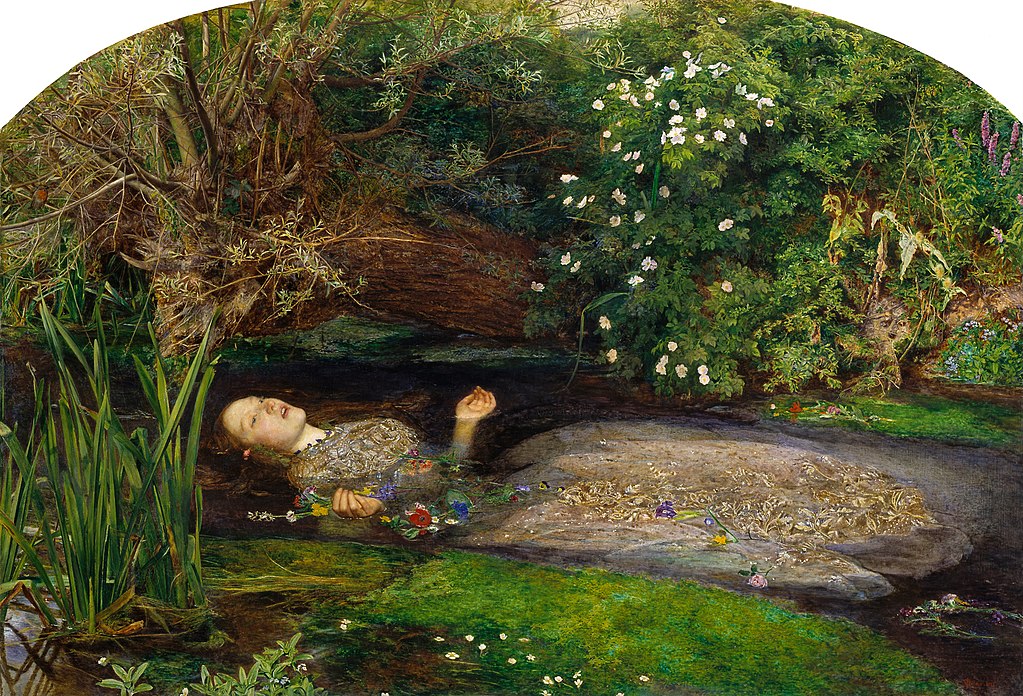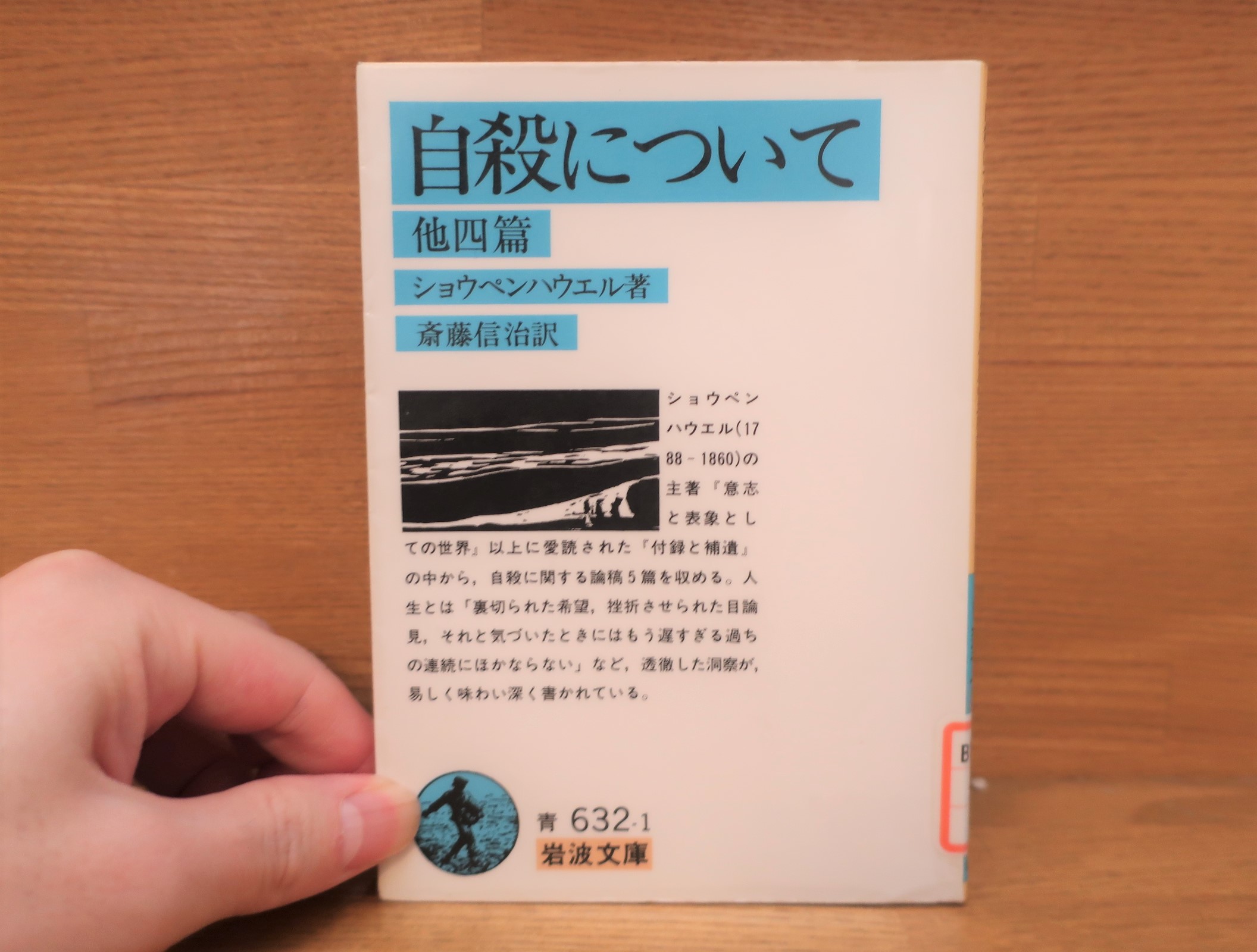Schopenhauer's "On Suicide" Synopsis and Comments - Why Suicide is Wrong: An Argument Against the Christian View of Life and Death
On Suicide" is a translation of Schopenhauer's 1851 essay on suicide in his "Afterword and Appendix.
I read "On Suicide" translated by Shinji Saito, Iwanami Shoten.
Let's take a quick look at the book.
This volume contains five essays on suicide from Schopenhauer's (1788-1860) "Appendix and Appendix," which is even more beloved than his main work "The World as Will and Representation. The essays are written in an easy-to-read and enjoyable manner with penetrating insights such as "Life is nothing but a series of betrayed hopes, frustrated plans, and mistakes which, by the time we realize them, it is too late.
AmazonProducts Page.
The book contains five articles written about suicide, including the 10-page article that gives the book its title, "On Suicide.
The article "On Suicide" begins as follows
As far as I know, the only people who consider suicide a crime are the followers of monotheistic religions, i.e., Jewish religions. However, this is even more bizarre since there is no prohibition against suicide in the Old Testament or the New Testament, nor is there anything in the Bible that definitively disapproves of the practice.
The theologians must therefore base their argument for the non-recognition of suicide on their own philosophical arguments, which are so dubious that they try to compensate for the lack of force in their arguments by intensifying their hatred of suicide, that is, by abusing it. What they lack in power, they try to compensate for by intensifying the expression of their hatred of suicide, i.e., by abusing it.
So we are told that there is no more cowardly act than suicide, that suicide is possible only in a state of mental derangement, and other such nonsense.
Iwanami Shoten, On Suicide, translated by Shinji Saito, p. 73.
Some line breaks have been made.
This article begins by posing the question of whether suicide is really a sin, as Christianity teaches.
Christian doctrine at the time forbade suicide, and those who committed suicide were not given a proper funeral and were treated as sinners. The most famous depiction of this isHamlet."It is Ophelia's death that appears in
Ophelia became mentally ill after the death of her father and the behavior of her lover Hamlet, and as a result, she drowned in the river. Since it was not clear whether this was an accident or suicide, no proper funeral service was held.

Thus, in the Christian world, it was like a social law that "suicide" was a sin and could never be tolerated under God.
But Schopenhauer questions this.
He says that since there is no explicit basis in Christian scripture for forbidding suicide, it would be unfair to treat suicides as sinners.
I think it would be better if a judgment could be made on whether suicide is a crime or not, appealing first and foremost to ethical sentiments. (omitted).
Who among us does not have acquaintances, friends, or relatives who have voluntarily left this world - and who recalls these people with the same hatred as we do criminals?
No, definitely not! Rather, I am asking by what authority can these monks - without being able to present any biblical authority, or even any solid philosophical argument - claim to have any authority over the actions of so many of our beloved people, through their pulpits and writings?crimeThey are of the opinion that we should demand an explanation from the priests on this point, whether or not they stamp their names with the "H" mark or refuse honorable burials to those who have voluntarily left this world.
In this case, however, we want to make it clear that what we are asking for isgrounds of an argumentInstead, we would like to receive no empty nonsense and abusive words from you.
Iwanami Shoten, On Suicide, translated by Shinji Saito, p. 74.
He states in a strong tone that there is no argument in the church that suicide is a sin.
I will then give several examples, including ancient Rome and India, to show that in ancient times suicide was accepted and even heroic.
Some of the quotes are as follows.
With Indians, as is well known, suicide emerges as a religious act - for example, widow burning to death, throwing oneself under the ruts of the sacred chariot of the Jagannath, or offering oneself to the crocodile of the Ganges River or the sacred pond of a temple. The same thing can be seen in theater, which is a mirror of life.
Iwanami Shoten, "On Suicide," translated by Shinji Saito, p. 77.
Indeed, even in Buddhism, there are stories of devotion to a starving tiger and death by fasting, as in the case of Sokushinbutsu.
Furthermore, as Schopenhauer also states, there is a lot of suicide in the theater world. This is especially true of Shakespeare. However, Schopenhauer states that Shakespeare is not condemned at all, but is rather respected throughout the world.
He then goes on to offer this theory about suicide.
The only proper ethical basis for opposing suicide I have stated in the first volume of my main work, Section 69. The rationale is this: suicide is a rebellion against the attainment of the highest ethical goal by offering a mere hypothetical salvation instead of a true salvation from this world of sorrows.
Iwanami Shoten, On Suicide, translated by Shinji Saito, p. 78
His main book is none other than "The World as Will and Representation. In fact, if you look at section 69 of that book, you will see that it is indeed about suicide.
But basically, as the book is titled "The World as Will and Representation," it is difficult to understand the book unless you know what Schopenhauer means by "will" and "representation.
It is too much for me, a non-expert, to explain them in detail here. So, if you are interested, please read the book.
Now, Schopenhauer's rationale for opposing suicide is that "suicide is a rebellion against the attainment of the highest ethical goal by offering a mere hypothetical salvation instead of a true salvation from this world of sorrow.
Schopenhauer was a philosopher influenced by Indian thought and Buddhism. The idea that the world is a world full of suffering is largely based on this idea. He believes that the path to salvation is to cultivate oneself so that one can be liberated from suffering in such a world of suffering. Schopenhauer opposes suicide because it closes off this path.
He also states
It seems to me that there must be some hidden reason why monotheistic priests are so extraordinarily active and zealous in their opposition to suicide, even though it is not supported by the Bible or by any sound argument.
The reason may be that to voluntarily renounce life would be too disrespectful to the One who said, "All is very good. -If so, we find here again the obligatory optimism of these religions, which preemptively accuse people of suicide in order to prevent them from being accused of suicide.
Iwanami Shoten, On Suicide, translated by Shinji Saito, p. 79.
After all, he remains critical of Christianity.
His description of Christian optimism was also the main theme of the French Enlightenment thinker Voltaire (1694-1778), who wroteCandide."In the following section, we point out the following.
In Christianity, God is an omniscient and omnipotent God. He is said to have created the world. Since an omniscient and omnipotent God created the world, there cannot be evil in this world. Even if there appears to be evil, the Christian optimist says, it is ultimately for the good.
In response, Schopenhauer states, "For Christianity, suicide is nothing but the denial of this world created by God. Therefore, they are trying to get ahead of it and prosecute suicide before the Christian worldview is prosecuted by suicide.
In this book, Schopenhauer states that suicide is never a blameworthy crime, but it should not be committed.
The philosopher Schopenhauer deeply examined the question of what suicide is in the context of the nineteenth century, when the Christian worldview was deeply entrenched.
Of course, in modern times, attitudes toward suicide have changed in Christianity, and the situation Schopenhauer is criticizing has changed.
However, suicide is still a major problem in modern Japan. And even if it does not lead to suicide, a huge number of people suffer mentally.
Although written more than 150 years ago, the issues addressed in this book are still of grave significance today.
The book is short and the style is easy to read, making it a relatively accessible book despite Schopenhauer's strong image as a difficult writer. We encourage you to read it.
It is definitely a great opportunity to rethink suicide and death. In this day and age, the significance of this event will become even stronger.
I myself have many thoughts and feelings about suicide. I cannot talk about them here, but I may do so someday when I have the chance.
The above is a summary of Schopenhauer's "On Suicide" - Why Suicide is Wrong - Schopenhauer's Theory of Suicide.
Next Article.
Click here to read the previous article.
Related Articles





































